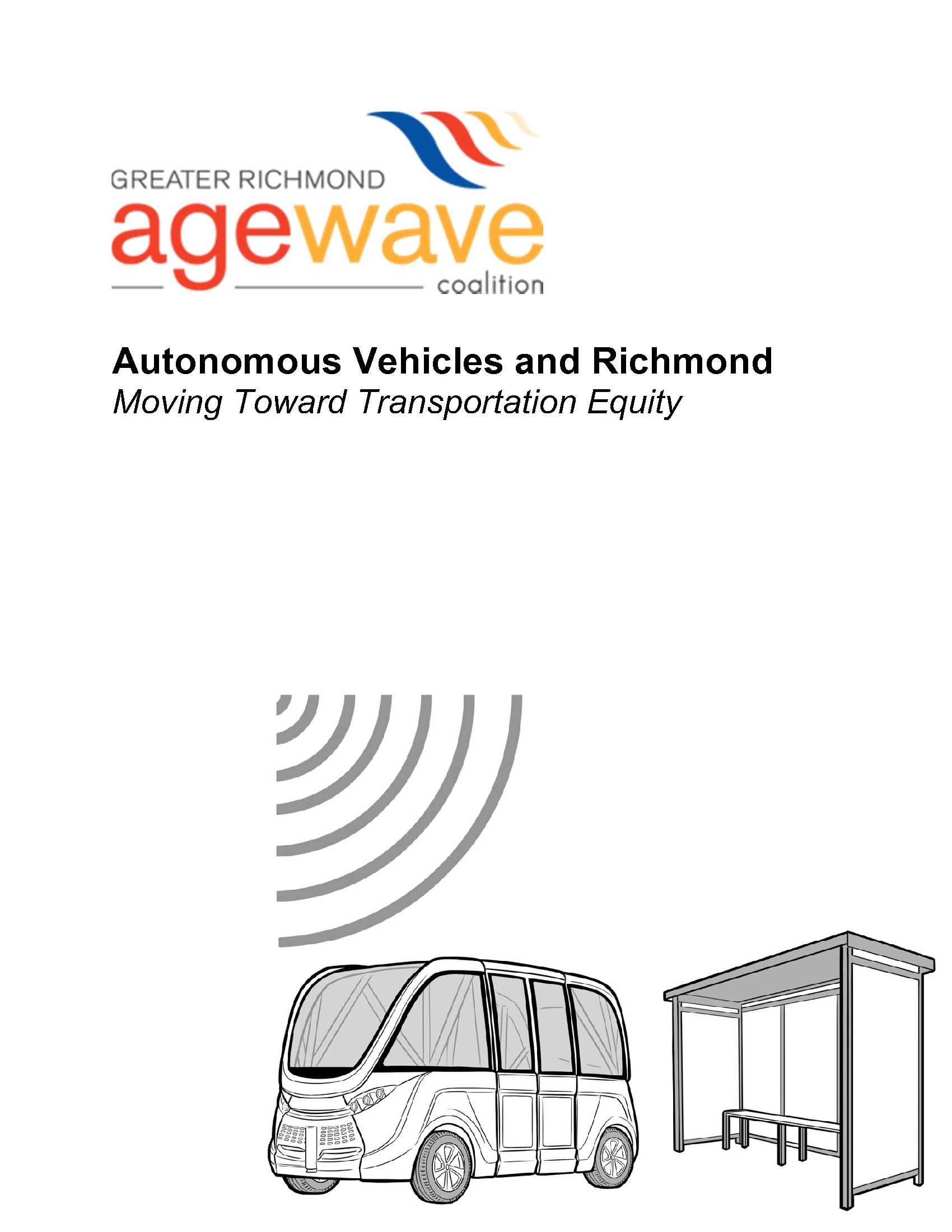Autonomous vehicles are ready to kick-start the next transportation revolution. Will they help solve transportation inequities created in the first automobile era, or serve only those can afford them?
The problem dates back to Henry Ford. Those who might benefit most from autonomous vehicles — people who cannot drive, or can’t afford a car — will likely have the least access. To fix this, we can set clear policy goals that maximize autonomous vehicles’ potential to promote transportation equity in communities where they might otherwise stay beyond reach. As an MPP student, I wanted to see what I could do during my time here to get this idea rolling in my adopted home town of Richmond, Virginia.
Boston is one place leading the charge – consumer testing for one company began for the first time just this month. As a long-enough-time journalist based first out of Somerville and later Richmond, I’ve seen the wide gap between the buzz created Boston’s autonomous vehicle future, and Richmond, where nearly all transportation issues trace back to the city’s racist past.
I came to UEP just as Boston’s autonomous vehicle testing began, and just as Richmond Bus Rapid Transit system started construction on a line that would duplicate existing service instead of filling massive service gaps. The wheels began turning.
UEP helped shape these threads into what has become a year-long deep dive into researching, analyzing and crafting policy in the vacuum between new technology and adoption. Mark Chase’s transportation policy survey, Penn Loh’s MPP seminar and Laurie Goldman’s policy implementation courses gave me the tools I needed to research urban and transportation policy adoption as an extended directed study, and eventually bring in policy makers from the Richmond region.
This work recently resulted in bicoastal results: The Greater Richmond Age Wave, a group of government officials, nonprofits, academics and business owners, are putting out their 2018 public policy agenda with a section dedicated to autonomous vehicle implementation goals aimed at increasing transportation equity for older adults and others without reliable transportation. I also joined Greater Richmond Age Wave Director of Strategy and Innovation Catherine MacDonald in San Francisco to present on the possibilities for autonomous vehicle adoption in Richmond, with generous support from the Tufts AS&E Graduate Student Travel Fund.

Just two weeks after I left San Francisco, General Motors showed off its latest autonomous vehicle to journalists on the city’s streets. The aim, they said, was to show investors where the company was headed: fleet-oriented sales rather than the 100-year-old personal ownership model (Uber and Lyft will buy the cars, you’ll just ride in them).
Even more enticing, GM jumped its timeline ahead to putting these vehicles in “major” cities by 2019.
2019, however, is too near for someone who might be left out of work. It’s conflicting to feel passionately that autonomous vehicles could be good for Richmond, while knowing this is possibly catastrophic for places like San Francisco, where so many drive to live in a city that’s widely known as one of the most expensive in the country.
I’ve spent much of my time at UEP looking at how autonomous vehicles are being presented by corporations, and thinking with planners and policy makers in Richmond about how they could fill critical capacity needs rather than consumer wants. This point before widespread adoption would be ideal for UEPers to research, analyze and puzzle out possible solutions to issues of labor, health and infrastructure presented by autonomous vehicles.
Some great work is already being done: UEP Chair Mary Davis recently received funding for her research on the gig economy, and the Tufts New Economy group is asking great questions.
If you have any questions about what I’ve learned while studying autonomous vehicle policy at UEP, or what other autonomous vehicle policy questions might be worth pursuing, you can reach me at thomas.nash@tufts.edu.
